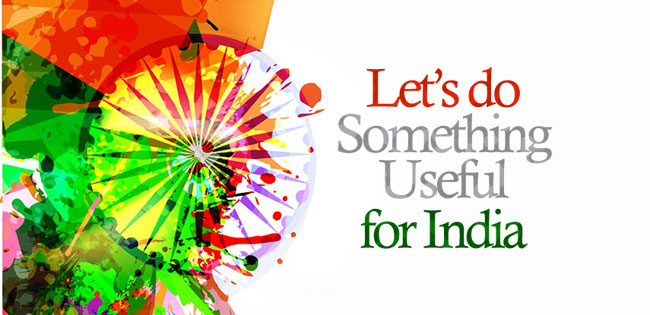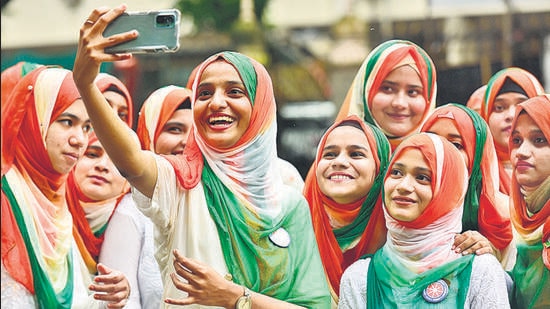India’s Independence Day Special, The Dreams And Determination Of Gen Z, Hurdles, And Voices Of The Future
As India celebrates its 77th Independence Day, this day marks not only the passage of time but also the emergence of a new generation of 17year olds, who step into their roles as voters and citizens. These young individuals were born in a country that gained its freedom decades before their birth and hence carry a different perspective on what freedom means to them, what it entails and the challenges it faces. As they step into the future and they prepare to exercise their constitutional rights, they are also set to embrace the responsibilities that come with them. With aspirations for a better and brighter future and still aware and concerned about persistent hurdles, these young voices provide a unique insight into the nation's evolution over 75 years.

India’s Independence Day
Prime Minister Narendra Modi, in his annual address from the historic Red Fort on India’s 77th Independence Day, rekindled the spirit of freedom fighters while outlining India’s pivotal position in shaping the new world order.
With the backdrop of a flag hoisting and aerial flower showers by the Indian Air Force, Modi’s speech marked his tenth consecutive Independence Day address, where he paid homage to the past while emphasizing a forward-looking commitment.
“At the start of my address, I wish to celebrate the largest democracy in the world and now the leading nation in terms of population. Today, 140 crore members of my family are celebrating Independence Day,” Modi began, acknowledging the enormity of the occasion.
Commending the nation’s progress, he directed attention to the future, describing India’s entry into a transformative era, “Amritkaal.” He stressed that the forthcoming steps will carry a historic impact for the next millennium. “The trinity of demography, democracy, and diversity holds the potential to realize the nation’s dreams,” he asserted.

A Journey Continues
As India celebrates its 77th Independence Day, it is aptly clear that the journey toward realizing the dreams of its citizens is far from over and the youth of India’s aspirations and concerns reflect the nation‘s evolving identity and the challenges it confronts.
Their voices are a reminder to us that while India has come a long way, the path ahead is still marked by hurdles that need to be addressed collectively; from the north to the south, east to west, the future of the nation lies in the hands of its youth, armed with dreams, hope and values, determined to drive change.
As the baton of freedom and growth is handed down to each new generation, it becomes their responsibility to continue the nation-building journey guided by the principles of justice, equality, and progress.
Therefore, the intelligence of the youth can be envisaged as they are also quick to point out that India’s struggle for freedom is not just confined to the past; instead, it is an ongoing endeavour to build a nation that lives up to its ideals.
As they recognize the power of their vote, these young individuals are taking steps to contribute to India’s unfolding story of growth, transformation, and unity.

Voices of Aspiration
As we bring together the voices of young citizens from various corners of India, it is evident that they all articulate a profound understanding of freedom.
Freedom is more than physical liberation for Siddharth Gosh of Port Blair; for him, it encompasses the right to live life on one’s terms, without societal restrictions.
Likewise, the value of freedom of expression resonates deeply with M Harish Chandrashekhar from Visakhapatnam, who believes that this freedom is essential to question policies and laws that impact ordinary people.
This generation’s aspiration for meaningful participation in governance is evident in their determination to vote, as expressed by Rehanso Barua from Arunachal Pradesh.

Fostering Unity Amidst Diversity
One of the recurring themes in the voices of these young citizens is India’s diversity and the unity it holds. Despite belonging to different regions, religions, and backgrounds, they all express pride in the nation’s mosaic of cultures and languages.
Niharika Uppal from Chandigarh praises India’s revolutionary spirit and the unyielding determination of its people to fight for their beliefs; however, this diversity is both a source of pride and concern.
Julia T A from Kochi applauds India’s unity in diversity but raises a critical point about the ongoing prevalence of discrimination against women and minority groups.
Education and Empowerment Is The Catalysts of Change
Education emerges as a powerful tool for change in the stories of these young voices.
These youngsters are also astute, and the transformation in their viewpoints is evident as they realize and talk about the fact that they have many more opportunities than their grandparents or parents did not.
For Dipika Sosa from Gujarat, education is the key to a brighter future, and she credits Dr B.R. Ambedkar for the access to education that she and many others like her now enjoy.
These youngsters perceive education as the means to break free from socioeconomic limitations and propel the nation forward.

Hurdles on the Path to Freedom
However, these young voices are also keenly aware of the challenges that India still faces.
Fiza Akhtar of Dibrugarh correctly articulates the divisiveness that exists that threatens the very backbone of the country’s unity and calls for a government that fosters brotherhood.
Similarly, Vartika Ahluwalia of New Shimla points out the need for compassion and a sense of duty among citizens to realize the potential of government policies.
Hence, in the very essence, the young voices express concern over inequality, corruption, and societal issues that persist despite the progress made since Independence.
Hope and the Power of a Single Vote
However, all is not rosy; there is still a long winding road with potholes; still, the optimism that resonates from their voices is palpable, and they all agree and recognize the potential of their individual votes that can shape the nation’s course.
The same is evident when Stan Yangdol from Leh acknowledges that the right to choose leaders through voting reflects the future they envision for the country.
Sania Solanki from Himachal Pradesh goes one step further and states that while exercising the right to vote, they are also exercising their duty as citizens to hold the government accountable for its actions.
Hence, the power of democracy, they believe, lies in the collective voices of the citizens.

Changing India, 75 Years On
Over the years, these young individuals have seen incredible changes in India’s position, and they acknowledge the strides made in education, technology, and women’s empowerment.
They celebrate India’s diversity, which remains a source of pride, while recognizing the enmity issues between communities and the challenges posed by overcrowded urban areas.
The Last Bit, As India commemorates its 77th Independence Day, the voices of these 17-year-olds call out for the nation’s progress while also addressing its persistent challenges.
The youth of today aspire for a future that upholds equality, unity, and justice; at the same time, they value the freedom to express, question, and contribute, emphasizing the importance of an engaged and informed citizenry.
They remain vigilant while acknowledging India’s achievements, pondering over the hurdles that hinder its full potential.
As this generation steps into its role as voters and citizens, their aspirations and concerns provide a roadmap for the nation’s continued growth and transformation in the years to come.




